Characteristics of creativity-friendly teaching in a sample of university teachers
DOI:
https://doi.org/10.25057/21452776.1539Keywords:
teaching practices, creativity, cognitive mediation strategies, emotional mediation strategies, evaluation, teacher as facilitatorAbstract
Introduction: Considering the great relevance of creativity to the profile of the 21st century professional, it is of the utmost importance to approach the study of teaching practices of teachers at the university level and to analyze the place of creative capacity building in them. Method: Quantitative study, descriptive level, non-experimental method, involving 298 teachers from Colombia, Cuba, Mexico and Ecuador. A questionnaire of teaching practices, designed ad hoc for the present study, was used to assess the use of cognitive and emotional-motivational mediation strategies, methodological flexibility and evaluation. Confirmatory factor analysis yielded 4 factors whose explained variance was 74 %, and α = . 86, indicated an adequate internal consistency of the scale. Results: The results indicate the need for improvement in the methodological aspects related to the promotion of creativity from teaching practices in the sample teachers, especially in the use of emotional-motivational mediation strategies. Teaching experience emerged as a variable associated with greater favorability towards creativity in teachers, as well as greater methodological and evaluative flexibility at the master’s and doctoral levels. The female gender was associated with greater attention to emotional and motivational aspects related to creativity. Differences between countries were evident, suggesting the importance of improvements in the subject in Colombian higher education institutions. Conclusions: It is evident the relevance of deepening and advancing towards a consensus in the definition of creativity and its operationalization in educational environments, in order to achieve a process of adequate training and preparation of teachers in the pedagogical and methodological issue related to their promotion from teaching practices.
Author Biographies
Olena Klimenko, Institución Universitaria de Envigado
Psicóloga (Universidad Lomonosov, Moscú), Magister en Ciencias Psicológicas (Universidad Lomonosov, Moscú), Magister en Ciencias Sociales (Universidad de Antioquia, Colombia), Doctora en Psicopedagogía (Universidad Católica de Argentina, Buenos Aires). Docente tiempo completo, Programa de psicología, Facultad de Ciencias Sociales, Institución Universitaria de Envigado. Colombia.
https://orcid.org/0000-0002-8411-1263
Nubia Hernández Flórez, Anáhuac University North Campus
Psicóloga, Universidad de Pamplona, Colombia
Máster en Gestión de Calidad, Universidad Católica de Valencia, España
Máster en Avances en Investigación tratamientos en psicopatologías y salud. Especialidad salud mental, Universidad de Valencia, España.
Doctora en Ciencias de la Educación, Universidad Cuauhtémoc, Aguas Calientes, México.
https://orcid.org/0000-0001-8756-1895
Annia Esther Vizcaino Escobar, Universidad Central “Marta Abreu” de Las Villas, Cuba
Licenciada en Psicología. Máster en Psicopedagogía. Doctora en Ciencias Psicológicas, Universidad Central "Marta Abreu" de Las Villas, Cuba
https://orcid.org/0000-0002-6058-5544
Marcela Diaz Moreno, Institución Universitaria de Envigado
Psicóloga, Institución Universitaria de Envigado, Colombia
https://orcid.org/0009-0007-1950-3846
Santiago Mendoza Gómez, Institución Universitaria de Envigado
Psicologo, Institución Universitaria de Envigado
https://orcid.org/0009-0002-7343-5198
References
Abarca-Cedeño, M. S. & Márquez Orozco, L. (2019). Análisis de la formación en creatividad en la Enseñanza Superior. Una reflexión desde el contexto educativo mexicano. Revista de Investigación en Educación, 1(17), 20-31. https://revistas.uvigo.es/index.php/reined/article/view/2140/2171
Aguilar-Pérez, P., Cruz-Covarrubias, L. P., Aguilar-Cruz, P. D. & Magaña-Jáuregui, C. I. (2023). Análisis del pensamiento crítico en estudiantes de una universidad pública mexicana. Cultura, Educación y Sociedad, 14(1), 125-144. https://doi.org/10.17981/cultedusoc.14.1.2023.07
Alt, D., Kapshuk, Y. & Dekel, H. (2023). Promoting perceived creativity and innovative behavior: Benefits of future problem-solving programs for higher education students. Thinking Skills and Creativity, 47, 101201. https://doi.org/10.1016/j.tsc.2022.101201.
Çelik, V. & Tümen Akyıldız, S. (2021). Creativity in EFL Classes: Examining Turkish Secondary School Teachers’ Attitudes and Thoughts. International Online Journal of Education and Teaching (IOJET), 8(3), 2007-2027. https://iojet.org/index.php/IOJET/article/view/1337
Chanal, V. (2019). La creatividad de la enseñanza en la educación superior: una perspectiva comunitaria. Aula Abierta, 48(4), 407-418. https://doi.org/10.17811/rifie.48.4.2019.407-418
Congreso de la República de Colombia. (1994, 8 de febrero). Ley 115 de 1994. Diario Oficial 41.214. http://www.secretariasenado.gov.co/senado/basedoc/ley_0115_1994.html
Congreso de la República de Colombia. (2006, 26 de enero). Ley 1014 de 2006. Diario Oficial 46.164. http://www.secretariasenado.gov.co/senado/basedoc/ley_1014_2006.html
Delgado, B., Amor, P. J., Domínguez-Sánchez, F. J. & Holgado-Tello, F. (2023). Relationship between adult attachment and cognitive emotional regulation style in women and men. Sci Rep 13, 8144. https://doi.org/10.1038/s41598-023-35250-0
Elisondo, R., De la Barrera, M. L., Riccetti, A. & Melgar, M. F. (2023). Educación superior, prácticas creativas y pandemia: un estudio con profesores argentinos. Revista de Investigación Educativa, 37, 172-194. https://doi.org/10.25009/cpue.v0i37.2851
Fiallos López, N. H., Paucar López, I. d. R., Vega Pérez, Y. J., Jurado Peñafiel, J. A. & Vargas Peña, B. J. (2023). Estrategias para fomentar la Creatividad y la Innovación en el Aula. Ciencia Latina Revista Científica Multidisciplinar, 7(2), 4082-4099. https://doi.org/10.37811/cl_rcm.v7i2.5631
Fischer, S. & Barabasch, A. (2020). Creativity in Different Occupations. En G. París, C. Quesada-Pallarès, A. Ciraso-Calí & H. Roig-Ester (eds.), Learning & Professional Development: From Innovative Research to Innovative Interventions. Book of abstracts of the EARLI SIG14 2020 Conference (pp. 82). Universitat Autònoma de Barcelona. https://www.academia.edu/96456389/Book_of_Abstracts_EARLI_SIG14_2020_pdf
Freiberg Hoffmann, A., Vigh, C. & Fernández-Liporace, M. (2021). Creatividad y enfoques de aprendizaje en estudiantes universitarios: Creativity and learning approaches in college students. Psicogente, 24(46), 1-17. https://doi.org/10.17081/psico.24.46.4492
Gaitán Nicolás, M. d. S. & Pérez de Francia, M. (2023). Identificación de competencias blandas para fortalecer el currículo de las carreras Administración de Empresas y Marketing y Publicidad. Revista del Caribe Nicaragüense, 78, 1-21. https://doi.org/10.5377/wani.v39i78.15849
Galvis Hurtado, R. (2019). Pedagogía y creatividad en la educación superior colombiana. Revista De Ingeniería, Innovación Y Desarrollo, 1(1), 59-63. https://doi.org/10.18041/2539-3359/riid.1.5278
González-Zamar, M. D. & Abad-Segura, E. (2019). Evidencias del aprendizaje creativo en la educación superior. Reencuentro. Análisis de Problemas Universitarios, 31(77), 111-132. https://reencuentro.xoc.uam.mx/index.php/reencuentro/article/view/991
Graves, B. S., Hall, M. E., Dias-Karch, C., Haischer, M. H. & Apter, C. (2021). Gender differences in perceived stress and coping among college students. PloS One, 16(8), e0255634. https://doi.org/10.1371/journal.pone.0255634
Han, W. & Abdrahim, N. A. (2023). The role of teachers’ creativity in higher education: A systematic literature review and guidance for future research. Thinking Skills and Creativity, 48, 101302. https://doi.org/10.1016/j.tsc.2023.101302.
Jiménez Mora, J., Moreno Bayardo, M. & Torres Frías, J. d. C. (2023). Significados sobre metodología de la investigación en programas de doctorado en Educación. Una exploración desde su componente curricular. Educación, 32(62), 161-184. https://doi.org/10.18800/educacion.202301.007
Karaca-Atik, A., Meeuwisse, M., Gorgievski, M. & Smeets, G. (2023). Uncovering important 21st-century skills for sustainable career development of social sciences graduates: A systematic review. Educational Research Review, 39, 100528. https://doi.org/10.1016/j.edurev.2023.100528.
Klimenko, O. (2015). Educar para la creatividad: un imperativo contemporáneo. Enclave social, 4(2), 8-25. https://www.researchgate.net/publication/309417437_Educar_para_la_creatividad_un_imperativo_contemporaneo
Klimenko, O. & Botero Castello, A. M. (2016). Fomento de la capacidad creativa desde las prácticas de enseñanza en una institución universitaria. Revista Psicoespacios, 10(17), 71-93. http://revistas.iue.edu.co/index.php/Psicoespacios/ issue/view/86/showToc
Klimenko, O., Hernández-Flórez, N. E., Tamayo-Lopera, D. A., Cudris-Torres, L., Niño-Vega, J. A. & Vizcaino-Escobar, A. E. (2023). Assessment of the teaching performance favors to creativity in a sample of Colombian public and private educational institutions. Revista de Investigación, Desarrollo e Innovación, 13(1), 115-128. https://doi.org/10.19053/20278306.v13.n1.2023.16071
Lasky, D. & Yoon, S. (2020). A creative classroom for everyone: An introduction to a small ‘c’ creativity framework, Thinking Skills and Creativity, 36, 100660. https://doi.org/10.1016/j.tsc.2020.100660.
Li, X-Z, Chen, C-C. & Kang, X. (2022). Research on the cultivation of sustainable development ability of higher vocational students by creative thinking teaching method. Front. Psychol. 13, 979913. https://doi.org/10.3389/fpsyg.2022.979913
López Cruz, E. Y., González-Bello, E. O. & Morales-Holguín, A. (2023). Fomento de creatividad y pensamiento creativo como innovación de la educación superior. Zincografía, 7(13), 161-185. https://doi.org/10.32870/zcr.v7i13.197
Mangion, M. & Riebel, J. A. (2023). Young Creators: Perceptions of Creativity by Primary School Students in Malta. Journal of Intelligence 11(3), 53. https://doi.org/10.3390/jintelligence11030053
Marczewska, M., Weresa, M. A. & Lachowicz, M. (2023). Towards Creativity and Innovation in Universities: Study on Central and Eastern Europe. Journal of Knowledge Economy. https://doi.org/10.1007/s13132-023-01139-6
Marenco, D. (2023). Pensamiento creativo en educación superior: actitudes y habilidades del profesorado universitario. Revista Cedotic, 8(1), 105-128. https://investigaciones.uniatlantico.edu.co/revistas/index.php/CEDOTIC/article/view/3709
Medina, A. M. (2018). Creatividad: Estrategias y técnicas creativas empleadas en educación universitaria. Revista de Investigación, 42(94), 34-58. https://www.redalyc.org/journal/3761/376160142002/html/
Mejía Corredor C. & Silva Ferreira, L. (eds.) (2023). Experiencias innovadoras en la educación superior colombiana. Ediciones Universidad Cooperativa de Colombia-Editorial Universidad Autónoma de Manizales.
Mucha-Huamán, W. E. (2023). Habilidades blandas para el logro de aprendizaje de los estudiantes de nivel superior. Investigación Valdizana, 17(2), 69-76. https://doi.org/10.33554/riv.17.2.1837
Nemeržitski, S. & Heinla, E. (2020). Teachers’ Creative Self-Efficacy, Self-Esteem, and Creative Teaching in Estonia: a Framework for Understanding Teachers’ Creativity-Supportive Behaviour. Creativity. Theories–Research-Applications, 7(1), 183-207. https://doi.org/10.2478/ctra-2020-0011
Normawati, M. & Kurniawati, F. (2023). Teaching for Fostering Creativity in Higher Education for Facing The Global Competition: A Systematic Literature Review. Jurnal Kependidikan, 9(2), 530-540. https://doi.org/10.33394/jk.v9i2.7780
Núñez-López, S., Avila-Palet, J. E. & Olivares-Olivares, S. L. (2017). El desarrollo del pensamiento crítico en estudiantes universitarios por medio del Aprendizaje Basado en Problemas. Revista Iberoamericana de Educación Superior, 8(23), 84-103. https://www.redalyc.org/articulo.oa?id=299152904005
Peralta Hernández, J. & Tirado Segura, F. (2023). Diseño de un entorno virtual de aprendizaje para promover la creatividad colaborativa en universitario. RIED. Revista Iberoamericana de Educación a Distancia, 26(2), 1-20. https://www.redalyc.org/journal/3314/331474781009/html/
Rae, J. (2023). Connecting for Creativity in Higher Education. Innovative Higher Education, 48, 127-143. https://doi.org/10.1007/s10755-022-09609-6
Steffens, E., Ojeda, D., Martínez, J. L., Hernández, H. G. & Moronta, Y. H. (2018). Presencia del pensamiento crítico en estudiantes de educación superior de la Costa Caribe Colombiana. Espacios, 39(30), 1-14. www.revistaespacios.com/a18v39n30/a18v39n30p01.pdf
Thornhill-Miller, B., Camarda, A., Mercier, M., Burkhardt, J. M., Morisseau, T., Bourgeois- Bougrine, S., Vinchon, F., El Hayek, S., Augereau-Landais, M., Mourey, F., Feybesse, C., Sundquis, D. & Lubart, T. (2023). Creativity, Critical Thinking, Communication, and Collaboration: Assessment, Certification, and Promotion of 21st Century Skills for the Future of Work and Education. Journal of Intelligence, 11(3), 54. https://doi.org/10.3390/jintelligence11030054
Vázquez-Miraz, P. (2021). La enseñanza de la creatividad en alumnos de psicología de la Universidad Tecnológica de Bolívar (Cartagena, Colombia). ArtsEduca 30, 131-142. http://dx.doi.org/10.6035/artseduca.5640
Villalobos Claveria, A. & Melo Hermosilla, Y. (2020). Creatividad y transferencia didáctica en la acción pedagógica de docentes universitarios chilenos. Cuadernos de Investigación Educativa, 11(2), 35-54. https://doi.org/10.18861/cied.2020.11.2.2992
Wang, C., Jia, T. & Sun, L. (2023). Research on Chemistry Teaching Skills in Middle School Under Micro-Teaching Environment. Advances in Social Sciences Research Journal, 10(6), 281-289. https://doi.org/10.14738/assrj.106.14837
Wang, A. & Burdina, G. (2023). Developing students’ creative thinking using innovative education technologies. Interactive Learning Environments. https://doi.org/10.1080/10494820.2023.2184390
How to Cite
Downloads
Published
Issue
Section
License
Copyright (c) 2024 Institución Universitaria de Envigado

This work is licensed under a Creative Commons Attribution-NonCommercial-ShareAlike 4.0 International License.
| Article metrics | |
|---|---|
| Abstract views | |
| Galley vies | |
| PDF Views | |
| HTML views | |
| Other views | |





